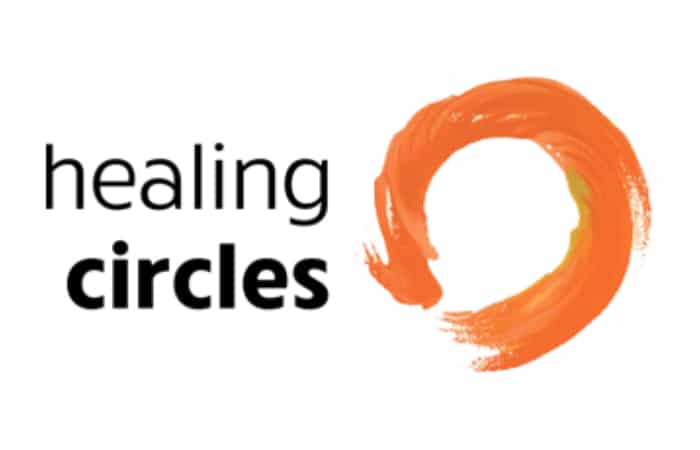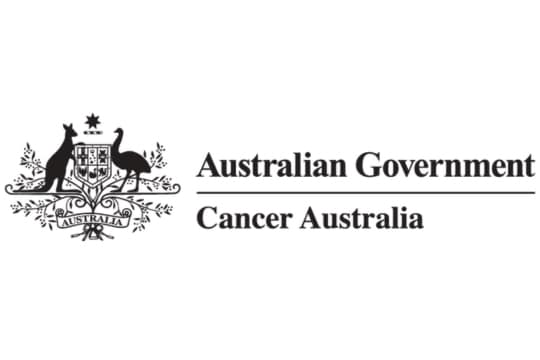This guide explains how anxiety affects your well-being during and after cancer treatment, and what you can do to manage it. Topics covered:
- Overview of anxiety, including common causes and how it relates to other symptoms
- Top evidence-based practices and therapies to manage anxiety
Anxiety at a glance
Anxiety—a general feeling of worry, nervousness, or unease—is common among people with cancer. Identifying and managing anxiety may be important parts of your cancer treatment plan. Triggers include fear, uncertainty, and conflict, and symptoms of anxiety include excessive worrying, restlessness, agitation, difficulty concentrating, and more. Anxiety is linked to worse cancer outcomes and body terrainthe internal conditions of your body, including nutritional status, fitness, blood sugar balance, hormone balance, inflammation and more factors important in cancer.
In addition to conventional treatments for anxiety, several self-care lifestyle practices and complementary therapies can help you manage anxiety. Those with the best evidence of effectiveness are listed here.
Anxiety may also be a symptom of stress. If stress is contributing to your anxiety, managing your stress will be important in reducing it.
Anxiety: an overview
What is anxiety?
Anxiety is a common symptom among people with cancer.1Smith AB, Rutherford C et al. A systematic review of quantitative observational studies investigating psychological distress in testicular cancer survivors. Psycho-oncology. 2017 Nov 23; Jacobsen PB, Jim HS. Psychosocial interventions for anxiety and depression in adult cancer patients: achievements and challenges. CA A Cancer Journal for Clinicians. 2008 Jul-Aug;58(4):214-30. According to Cancer.Net, anxiety may be described as feeling nervous, “on edge”, or worried. A normal emotion, it alerts your body to respond to a threat.2Anxiety. American Cancer Society. February 1, 2020. Viewed June 27, 2024.
Intense and prolonged anxiety may interfere with your daily activities and relationships. Anxiety may make coping with cancer treatment more difficult and may also interfere with your ability to make choices about your care. Identifying and managing anxiety are important parts of your cancer treatment.3Anxiety. American Cancer Society. February 1, 2020. Viewed June 27, 2024.
Anxiety and cancer
Anxiety is linked to higher risks of cancer,4Wang YH, Li JQ et al. Depression and anxiety in relation to cancer incidence and mortality: a systematic review and meta-analysis of cohort studies. Molecular Psychiatry. 2020 Jul;25(7):1487-1499. of recurrence,5Wang X, Wang N et al. Prognostic value of depression and anxiety on breast cancer recurrence and mortality: a systematic review and meta-analysis of 282,203 patients. Molecular Psychiatry. 2020 Dec;25(12):3186-3197. and of cancer-related death.6Wang YH, Li JQ et al. Depression and anxiety in relation to cancer incidence and mortality: a systematic review and meta-analysis of cohort studies. Molecular Psychiatry. 2020 Jul;25(7):1487-1499; Wang X, Wang N et al. Prognostic value of depression and anxiety on breast cancer recurrence and mortality: a systematic review and meta-analysis of 282,203 patients. Molecular Psychiatry. 2020 Dec;25(12):3186-3197. Anxiety is also linked to body terrain factors important in cancer, such as body weight,7Gariepy G, Nitka D, Schmitz N. The association between obesity and anxiety disorders in the population: a systematic review and meta-analysis. International Journal of Obesity (London). 2010 Mar;34(3):407-19; Amiri S, Behnezhad S. Obesity and anxiety symptoms: a systematic review and meta-analysis. Neuropsychiatrie. 2019 Jun;33(2):72-89. English. inflammation,8Costello H, Gould RL, Abrol E, Howard R. Systematic review and meta-analysis of the association between peripheral inflammatory cytokines and generalised anxiety disorder. BMJ Open. 2019 Jul 19;9(7):e027925; Abbott R, Whear R et al. Tumour necrosis factor-α inhibitor therapy in chronic physical illness: a systematic review and meta-analysis of the effect on depression and anxiety. Journal of Psychosomatic Research. 2015 Sep;79(3):175-84. and your microbiome.9Okubo R, Kinoshita T et al. Impact of chemotherapy on the association between fear of cancer recurrence and the gut microbiota in breast cancer survivors. Brain, Behavior, and Immunity. 2020 Mar;85:186-191; Paulsen JA, Ptacek TS et al. Gut microbiota composition associated with alterations in cardiorespiratory fitness and psychosocial outcomes among breast cancer survivors. Supportive Care in Cancer. 2017 May;25(5):1563-1570.
Anxiety is also linked to symptoms and side effects common with cancer:
- Worse memory and ability to think10Oteri V, Martinelli A, Crivellaro E, Gigli F. The impact of preoperative anxiety on patients undergoing brain surgery: a systematic review. Neurosurgical Review. 2021 Dec;44(6):3047-3057.
- Symptoms of depression11Oteri V, Martinelli A, Crivellaro E, Gigli F. The impact of preoperative anxiety on patients undergoing brain surgery: a systematic review. Neurosurgical Review. 2021 Dec;44(6):3047-3057.
- Pain12Charalambous A, Giannakopoulou M, Bozas E, Paikousis L. Parallel and serial mediation analysis between pain, anxiety, depression, fatigue and nausea, vomiting and retching within a randomised controlled trial in patients with breast and prostate cancer. BMJ Open. 2019 Jan 24;9(1):e026809; Wolyniec K, Sharp J et al. Psychological distress, understanding of cancer and illness uncertainty in patients with cancer of unknown primary. Psycho-Oncology. 2022 Nov;31(11):1869-1876; de la O Murillo A, Torres AC et al. Association of pain with the presence of additional supportive care (SC) needs in patients with advanced cancer. Journal of Clinical Oncology. 2022 Jun 1;40(16_suppl):e24071-e24071; Solvik E, Ytrehus S, Utne I, Grov EK. Pain, fatigue, anxiety and depression in older home‐dwelling people with cancer. Nursing Open. 2019 Nov 5;7(1):430-438; Tarrasch J, England P, Hurst VT, McDonald D, O’Keefe R, Cipriano C. Patients with metastatic disease are at highest risk for anxiety and depression in an orthopedic oncology patient population. JCO Oncology Practice. 2022 Jun 1:OP2100905; McCarthy LH, Bigal ME, Katz M, Derby C, Lipton RB. Chronic pain and obesity in the elderly: results from the Einstein aging study. Journal of the American Geriatrics Society. 2009 Jan;57(1):115-9; Portenoy RK, Payne D, Jacobsen P. Breakthrough pain: characteristics and impact in patients with cancer pain. Pain. 1999 May;81(1-2):129-34; Strang P. Existential consequences of unrelieved cancer pain. Palliative Medicine. 1997 Jul;11(4):299-305; Spiegel D, Sands S, Koopman C. Pain and depression in patients with cancer. Cancer. 1994 Nov 1;74(9):2570-8.
- Worse overall quality of life and physical function13Oteri V, Martinelli A, Crivellaro E, Gigli F. The impact of preoperative anxiety on patients undergoing brain surgery: a systematic review. Neurosurgical Review. 2021 Dec;44(6):3047-3057.
- Recovery after surgery14Gümüs K. The effects of preoperative and postoperative anxiety on the quality of recovery in patients undergoing abdominal surgery. Journal of PeriAnesthesia Nursing. 2021 Apr;36(2):174-178.
- Sleep disturbance15Azizoddin DR, Soens MA et al. Perioperative sleep disturbance following mastectomy: a longitudinal investigation of the relationship to pain, opioid use, treatment, and psychosocial symptoms. Journal of Clinical Oncology. 2021 Oct 1;39(28_suppl:192.
These links may be complex: anxiety may lead to these problems, or these problems may contribute to anxiety. Sometimes the links work in both directions, such as anxiety worsening pain and more pain worsening anxiety. Since we have good evidence of these links, managing your anxiety may be one step you can take to improve your well-being and treatment outcomes—and managing body terrain factors such as body weight, inflammation and your microbiome may ease anxiety.
What can cause or trigger anxiety?
If you are living with cancer, you may have fears and worries related to cancer, treatments, recurrence, and their impacts on you and your family. Any of these may trigger anxiety.16Anxiety. American Cancer Society. February 1, 2020. Viewed June 27, 2024; Hendriksen E, Williams E et al. Worried together: a qualitative study of shared anxiety in patients with metastatic non-small cell lung cancer and their family caregivers. Supportive Care in Cancer. 2015 Apr;23(4):1035-41; Meissner VH, Olze L et al. Fear of cancer recurrence and disease progression in long-term prostate cancer survivors after radical prostatectomy: a longitudinal study. Cancer. 2021 Nov 15;127(22):4287-4295; Tsao PA, Ross RD, Bohnert ASB, Mukherjee B, Caram MEV. Depression, anxiety, and patterns of mental health care among men with prostate cancer receiving androgen deprivation therapy. Oncologist. 2022 Apr 5;27(4):314-322; Pizzo A, Leisenring WM et al. Fear of cancer recurrence in adult survivors of childhood cancer. JAMA Network Open. 2024 Oct 1;7(10):e2436144.
Medical and emotional conditions
Obesity17Gariepy G, Nitka D, Schmitz N. The association between obesity and anxiety disorders in the population: a systematic review and meta-analysis. International Journal of Obesity (London). 2010 Mar;34(3):407-19; Amiri S, Behnezhad S. Obesity and anxiety symptoms: a systematic review and meta-analysis. Neuropsychiatrie. 2019 Jun;33(2):72-89. English. and alcohol use18Mosel S. Anxiety and alcohol: does drinking cause anxiety & panic attacks? American Addiction Centers. March 8, 2024. Viewed June 26, 2024. are each linked to increased risk of anxiety. For a person with obesity and/or alcohol use along with anxiety, the links could work in several ways. Obesity or alcohol use may increase risk of anxiety, but anxiety may also increase risk of obesity or alcohol use. Researchers suspect that the links work in both directions. This may mean that reducing either anxiety or obesity may lead to less of the other, and the same may be true for anxiety and alcohol use.
People with cancer with poorer sleep quality have shown more anxiety.19Pole L, Hepp N. How can Sleeping Well help you? What the research says. CancerChoices. January 18, 2024.
Your inability to take care of yourself and be mobile and independent at home or in your community20Chen ML, Chang HK, Yeh CH. Anxiety and depression in Taiwanese cancer patients with and without pain. Journal of Advanced Nursing. 2000 Oct;32(4):944-51. or fixating on worst-case outcomes (catastrophizing)21Fischer DJ, Villines D, Kim YO, Epstein JB, Wilkie DJ. Anxiety, depression, and pain: differences by primary cancer. Supportive Care in Cancer. 2010 Jul;18(7):801-10. may contribute to higher anxiety.
Medications and therapies
Some medications and natural products used during cancer treatment or for other conditions may trigger anxiety. Check the inserts with any prescription medications you use or ask your pharmacist if you have concerns. Some therapies that may trigger anxiety:
- Nonsteroidal anti-inflammatory drugs (NSAIDs) ›
- Stimulants such as ephedra, ginseng, and bitter orange22Block KI. Life over Cancer: The Block Center Program for Integrative Cancer Treatment. New York: Bantam Dell. 2009.
Diet
Some foods are linked to an increased risk of anxiety, such as foods containing caffeine or a pro-inflammatory diet high in commercially baked goods, fried foods, and fatty meats and low in fruits and vegetables.23Pole L, Hepp N. How can Eating Well help you? What the research says. CancerChoices. April 14, 2024.
Noise
Exposure to traffic noise is linked to an increased risk for anxiety.24Hepp N, Williams M. Creating a Healing Environment. CancerChoices. February 22, 2024.
Risk factors for anxiety
You are more likely to experience anxiety if you have any of these risk factors:25Anxiety. American Cancer Society. February 1, 2020. Viewed June 26, 2024; Okuyama M, Takaishi O et al. Associations among gastroesophageal reflux disease, psychological stress, and sleep disturbances in Japanese adults. Scandinavian Journal of Gastroenterology. 2017 Jan;52(1):44-49.
- Previous diagnosis or family history of anxiety or depression
- Lack of support from friends and family
- Financial burdens
- Gastroesophageal reflux disease (GERD)
What are the signs or symptoms of anxiety?
Anxiety can be linked to any of these symptoms.26Julson E. Signs and Symptoms of Anxiety Disorders. Healthline. August 26, 2021. Viewed March 16, 2022; Raypole C. Physical Symptoms of Anxiety: How Does It Feel? Healthline. March 15, 2019. Viewed March 16, 2022.
Mental/emotional symptoms
- Excessive worrying
- Agitation
- Restlessness
- Difficulty concentrating
- Irritability
- Difficulty falling or staying asleep
- Panic attacks
- Avoiding social situations
- Irrational fears
Physical symptoms
- Muscle tension or pain
- Stomach pain, nausea, or digestive trouble
- Headache
- Weakness or fatigue
- Rapid breathing or shortness of breath
- Pounding heart or increased heart rate
- Sweating
- Trembling or shaking
Top evidence-based practices and therapies for managing anxiety
We present approaches to reducing anxiety backed by modestsignificant effects in at least three small but well-designed randomized controlled trials (RCTs), or one or more well-designed, mid-sized clinical studies of reasonably good quality (RCTs or observational studies), or several small studies aggregated into a meta-analysis (this is the CancerChoices definition; other researchers and studies may define this differently), goodsignificant effects in one large or several mid-sized and well-designed clinical studies (randomized controlled trials (RCTs) with an appropriate placebo or other strong comparison control or observational studies that control for confounds) (this is the CancerChoices definition; other researchers and studies may define this differently), or strongconsistent, significant effects in several large (or at least one very large) well designed clinical studies or at least two meta-analyses of clinical studies of moderate or better quality (or one large meta-analysis) finding similar results (this is the CancerChoices definition; other researchers and studies may define this differently) evidence of effectiveness. Anxiety may also be a symptom of stress. If stress is contributing to your anxiety, managing your stress will be important in reducing it. If your anxiety is a symptom of other medical conditions, you may need to seek treatment to address the cause of your anxiety to find relief.
Seek professional help if needed. Diagnoses such as anxiety can require therapy from trained practitioners for management. We encourage you to explore the options available to you through your cancer team and other experts. Taking care of your mental health is as important as taking care of your physical health.
SIO-ASCO clinical practice guidelines recommendations
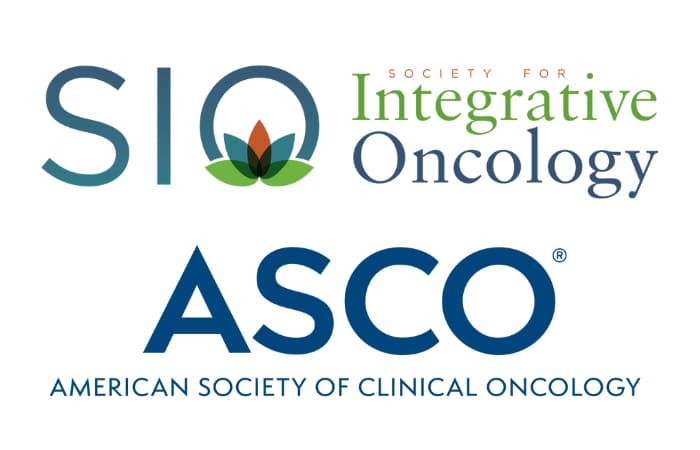
In 2023, the Society for Integrative Oncology and the American Society of Clinical Oncology published Integrative Oncology Care of Symptoms of Anxiety and Depression in Adults With Cancer ›
These recommendations are based on a rigorous review of complementary therapies with a high level of evidence. Therapies are recommended in the guidelines for different phases of cancer treatment. Many of these therapies are also recommended in other clinical practice guidelines.27Gowin K, Muminovic M, Zick SM, Lee RT, Lacchetti C, Mehta A. Integrative therapies in cancer care: an update on the guidelines. American Society of Clinical Oncology Educational Book. 2024 Jun;44(3):e431554; Greenlee H, DuPont-Reyes MJ et al. Clinical practice guidelines on the evidence-based use of integrative therapies during and after breast cancer treatment. CA: A Cancer Journal for Clinicians. 2017 May 6;67(3):194-232 (this set of guidelines has been endorsed by the American Society of Clinical Oncology (ASCO): Lyman GH, Greenlee H et al. Integrative therapies during and after breast cancer treatment: ASCO endorsement of the SIO clinical practice guideline. Journal of Clinical Oncology. 2018 Sep 1;36(25):2647-2655); Deng GE, Rausch SM et al. Complementary therapies and integrative medicine in lung cancer: diagnosis and management of lung cancer, 3rd ed: American College of Chest Physicians evidence-based clinical practice guidelines. Chest. 2013 May;143(5 Suppl):e420S-e436S; Deng GE, Frenkel M et al. Evidence-based clinical practice guidelines for integrative oncology: complementary therapies and botanicals. Journal of the Society for Integrative Oncology. 2009 Summer;7(3):85-120.
Download the SIO and CancerChoices Integrative Oncology eBook ›
Recommended both during and after cancer treatment
- Mindfulness-based interventions including mindfulness-based stress reduction (MBSR) promote relaxation and stress reduction through practices like meditation and deep breathing. Learn more about mindfulness practices for people with cancer ›
- Reflexology uses gentle pressure on specific points along feet, hands,or ears. Find a practitioner at the Complementary and Natural Healthcare Council › or American Reflexology Certification Board ›
- Yoga is a mind-body practice that includes breath control, meditation, and physical postures. See Yoga: affordability and access ›
Recommended during cancer treatment
- Hypnosis or hypnotherapy is a technique to induce a state of greater awareness, focused attention and deep relaxation to manage symptoms or help a person gain control over behaviors they’d like to change. Learn more about hypnotherapy for cancer care ›
- Lavender essential oil inhalation: Learn more about aromatherapy ›
- Music therapy or music-based interventions; find a therapist through the American Music Therapy
Association › - Relaxation techniques refocus your attention on something calming and increase awareness of your body. See Relaxation techniques: affordability and access ›
Recommended after cancer treatment
- Acupuncture is a practice of inserting fine needles into the body at specific points. See Acupuncture: affordability and access ›
- Tai chi and/or qigong are forms of energy therapy, mind-body exercise, and meditation, practiced at a low to moderate intensity. See Tai Chi or Qigong: affordability and access ›
Other practices and therapies
Conventional therapies
Various prescription drugs may help manage anxiety. Ask your doctor for recommendations, but also ask about side effects from their use. Many of the lifestyle practices and complementary therapies described on this page have fewer side effects and sometimes may be as effective or more effective than prescription drugs, or may help reduce the amount of anti-anxiety medication you need to take. Safety note: Among people with pancreatic cancer, the anti-anxiety drug lorazepam increased a marker of inflammation (IL-6) and was linked to poorer survival.28Cornwell AC, Tisdale AA et al. Lorazepam stimulates IL6 production and is associated with poor survival outcomes in pancreatic cancer. Clinical Cancer Research. 2023 Aug 17:OF1-OF20.
Psychosocial therapies include cognitive behavioral therapy, relaxation training, imagery/visualization, psychoeducation, and behavioral approaches. These are recommended for managing anxiety among people with cancer in practice guidelines.29Andersen BL, Lacchetti C et al. Management of anxiety and depression in adult survivors of cancer: ASCO guideline update. Journal of Clinical Oncology. 2023 Jun 20;41(18):3426-3453; Deng GE, Rausch SM et al. Complementary therapies and integrative medicine in lung cancer: diagnosis and management of lung cancer, 3rd ed: American College of Chest Physicians evidence-based clinical practice guidelines. Chest. 2013 May;143(5 Suppl):e420S-e436S; Deng GE, Frenkel M et al. Evidence-based clinical practice guidelines for integrative oncology: complementary therapies and botanicals. Journal of the Society for Integrative Oncology. 2009 Summer;7(3):85-120.
Lifestyle practices
We have found modestsignificant effects in at least three small but well-designed randomized controlled trials (RCTs), or one or more well-designed, mid-sized clinical studies of reasonably good quality (RCTs or observational studies), or several small studies aggregated into a meta-analysis (this is the CancerChoices definition; other researchers and studies may define this differently), goodsignificant effects in one large or several mid-sized and well-designed clinical studies (randomized controlled trials (RCTs) with an appropriate placebo or other strong comparison control or observational studies that control for confounds) (this is the CancerChoices definition; other researchers and studies may define this differently), or strongconsistent, significant effects in several large (or at least one very large) well designed clinical studies or at least two meta-analyses of clinical studies of moderate or better quality (or one large meta-analysis) finding similar results (this is the CancerChoices definition; other researchers and studies may define this differently) evidence that these lifestyle practices may be effective in managing anxiety.
- Moving More Exercise may lead to small improvements in anxiety among people with cancer, although no evidence supports use among people with advanced cancer.30Hepp N, Pole L. How can Moving More help you? What the research says. CancerChoices. May 29, 2024. Exercise is recommended for managing anxiety among people with cancer in practice guidelines, although not resistance exercises alone.31Andersen BL, Lacchetti C et al. Management of anxiety and depression in adult survivors of cancer: ASCO guideline update. Journal of Clinical Oncology. 2023 Jun 20;41(18):3426-3453; Campbell KL, Winters-Stone KM et al. Exercise guidelines for cancer survivors: consensus statement from international multidisciplinary roundtable. Medicine & Science in Sports & Exercise. 2019 Nov;51(11):2375-2390. See How to Move More ›
- Combining Eating Well and Moving More: People participating in a combined intervention of diet and physical activity have shown slightly less anxiety (not specific to cancer).32Pole L, Hepp N. How can Eating Well help you? What the research says. CancerChoices. April 14, 2024. See How to Eat Well › and How to Move More ›
- Managing Stress: Stress and anxiety are closely linked, and anxiety triggers may also be stressors. Therapies and approaches that manage stress may also relieve anxiety. People with better acceptance of cancer have shown lower anxiety and distress.33Pole L, Hepp N. How can Managing Stress help you? What the research says. CancerChoices. May 1, 2024. Stress reduction is recommended for managing anxiety among people with cancer in several practice guidelines.34Greenlee H, DuPont-Reyes MJ et al. Clinical practice guidelines on the evidence-based use of integrative therapies during and after breast cancer treatment. CA: A Cancer Journal for Clinicians. 2017 May 6;67(3):194-232. (this set of guidelines has been endorsed by the American Society of Clinical Oncology (ASCO): Lyman GH, Greenlee H et al. Integrative therapies during and after breast cancer treatment: ASCO endorsement of the SIO clinical practice guideline. Journal of Clinical Oncology. 2018 Sep 1;36(25):2647-2655); Deng GE, Rausch SM et al. Complementary therapies and integrative medicine in lung cancer: diagnosis and management of lung cancer, 3rd ed: American College of Chest Physicians evidence-based clinical practice guidelines. Chest. 2013 May;143(5 Suppl):e420S-e436S. See What practices and therapies can help with stress? ›
- Stop smoking: People who stop smoking have shown long-term improvement in symptoms after short-term increases in anxiety.35Conti AA, Tolomeo S, Steele JD, Baldacchino AM. Severity of negative mood and anxiety symptoms occurring during acute abstinence from tobacco: a systematic review and meta-analysis. Neuroscience and Biobehavioral Reviews. 2020 Aug;115:48-63; Wu AD, Gao M, Aveyard P, Taylor G. Smoking cessation and changes in anxiety and depression in adults with and without psychiatric disorders. JAMA Network Open. 2023 May 1;6(5):e2316111. Learn more about adopting a healthy lifestyle ›
Complementary therapies
We have found modestsignificant effects in at least three small but well-designed randomized controlled trials (RCTs), or one or more well-designed, mid-sized clinical studies of reasonably good quality (RCTs or observational studies), or several small studies aggregated into a meta-analysis (this is the CancerChoices definition; other researchers and studies may define this differently), goodsignificant effects in one large or several mid-sized and well-designed clinical studies (randomized controlled trials (RCTs) with an appropriate placebo or other strong comparison control or observational studies that control for confounds) (this is the CancerChoices definition; other researchers and studies may define this differently), or strongconsistent, significant effects in several large (or at least one very large) well designed clinical studies or at least two meta-analyses of clinical studies of moderate or better quality (or one large meta-analysis) finding similar results (this is the CancerChoices definition; other researchers and studies may define this differently) evidence that these complementary therapies may be effective in managing anxiety. For guidance in selecting and using complementary therapies, see Finding Integrative Oncologists and Other Practitioners ›
Supplements and natural products
- Cannabis and cannabinoids (marijuana) are the buds or extracts from cannabis (marijuana) plants. People with non-cancer medical conditions have shown fewer anxiety symptoms when treated with pharmaceutical THC either with or without CBD, but insufficient evidence shows any benefit among people with cancer.36Hepp N, Pole L. How can cannabis and cannabinoids help you? What the research says. CancerChoices. May 10, 2024. See Cannabis and cannabinoids: affordability and access › Safety note: Cannabis use is linked to higher risk of some types of cancer and to worse response to immunotherapy among people with advanced cancer. Cannabis-derived therapies may also cause acute or prolonged psychotic states, distress, anxiety, sedation, and more.37Horn JR, Hansten PD. Drug interactions with marijuana. Pharmacy Times. December 9, 2014. Viewed October 9, 2021; International Programme on Chemical Safety. Cannabis sativa L. October 1989. Viewed October 9, 2021; American Cancer Society. Marijuana and Cancer. March 16, 2017. Viewed October 9, 2021; Kramer JL. Medical marijuana for cancer. CA: A Cancer Journal for Clinicians. 2015 Mar;65(2):109-22. See Cannabis and cannabinoids: safety and precautions ›
- Melatonin is a hormone and supplement that regulates sleep cycles. Adults preparing for surgery or recovering from surgery (not specific to cancer) have shown less anxiety when treated with melatonin, comparable to results with benzodiazepines. No evidence to date shows an effect on anxiety among people with cancer.38Hepp N. How can melatonin help you? What the research says. CancerChoices. July 3, 2024. See Melatonin: affordability and access › Safety note: Melatonin can interact with anesthesia. Be sure your surgeon and anesthesiologist know if you’ve taken melatonin within a few days before surgery. See Melatonin: safety and precautions ›
- Psilocybin: People with cancer with either end-of-life anxiety or psychiatric distress treated with psilocybin—often a single dose—have reported less anxiety in several studies.39Hepp N. How can psilocybin help you? What the research says. CancerChoices. December 2, 2024. However, legal access to psilocybin is currently limited to clinical trials.
- Vitamin C supplements: People treated with oral vitamin C have shown less anxiety related to stress (not specific to cancer).40Hepp N. Pole L. How can oral vitamin C help you? What the research says. CancerChoices. May 7, 2024. See Oral vitamin C: affordability and access ›
Other complementary therapies
- Acupressure is the application of pressure to specific places on your body. People with cancer have shown less anxiety when treated with acupressure in several studies, including during cancer treatment.41Hepp N. How can acupressure help you? What the research says. CancerChoices. October 16, 2024. See Acupressure: affordability and access ›
- Energy therapies for managing anxiety include biofield energy therapies or subtle energy therapies (such as Reiki) using touch, stimulation, or non-touch energy from a therapist.42Williams M, Hepp N. Energy Therapies: Introduction. CancerChoices. February 27, 2023. Such energy therapies are recommended in one practice guideline for managing anxiety among people with cancer.43Deng GE, Frenkel M et al; Society for Integrative Oncology. Evidence-based clinical practice guidelines for integrative oncology: complementary therapies and botanicals. Journal of the Society for Integrative Oncology. 2009 Summer;7(3):85-120. See pages on affordability and access for these therapies: Therapeutic Touch® ›, healing touch ›, Reiki ›, or polarity therapy ›
- Massage and aromatherapy may help people with cancer manage anxiety.44Khiewkhern S, Promthet S, Sukprasert A, Eunhpinitpong W, Bradshaw P. Effectiveness of aromatherapy with light thai massage for cellular immunity improvement in colorectal cancer patients receiving chemotherapy. Asian Pacific Journal of Cancer Prevention. 2013;14(6):3903-7; Wilkinson SM, Love SB et al. Effectiveness of aromatherapy massage in the management of anxiety and depression in patients with cancer: a multicenter randomized controlled trial. Journal of Clinical Oncology. 2007 Feb 10;25(5):532-9. Massage is recommended for managing anxiety among people with cancer in practice guidelines.45Greenlee H, DuPont-Reyes MJ et al. Clinical practice guidelines on the evidence-based use of integrative therapies during and after breast cancer treatment. CA: A Cancer Journal for Clinicians. 2017 May 6;67(3):194-232 (this set of guidelines has been endorsed by the American Society of Clinical Oncology (ASCO): Lyman GH, Greenlee H et al. Integrative therapies during and after breast cancer treatment: ASCO endorsement of the SIO clinical practice guideline. Journal of Clinical Oncology. 2018 Sep 1;36(25):2647-2655); Deng GE, Frenkel M et al. Evidence-based clinical practice guidelines for integrative oncology: complementary therapies and botanicals. Journal of the Society for Integrative Oncology. 2009 Summer;7(3):85-120. Find an oncology massage practitioner ›, learn more about aromatherapy › or find a registered aromatherapist ›
- Meditation uses a technique such as focusing the mind to train attention and awareness. It is recommended for managing anxiety among people with cancer in practice guidelines.46Deng GE, Rausch SM et al. Complementary therapies and integrative medicine in lung cancer: diagnosis and management of lung cancer, 3rd ed: American College of Chest Physicians evidence-based clinical practice guidelines. Chest. 2013 May;143(5 Suppl):e420S-e436S; Greenlee H, DuPont-Reyes MJ et al. Clinical practice guidelines on the evidence-based use of integrative therapies during and after breast cancer treatment. CA: A Cancer Journal for Clinicians. 2017 May 6;67(3):194-232 (this set of guidelines has been endorsed by the American Society of Clinical Oncology (ASCO): Lyman GH, Greenlee H et al. Integrative therapies during and after breast cancer treatment: ASCO endorsement of the SIO clinical practice guideline. Journal of Clinical Oncology. 2018 Sep 1;36(25):2647-2655); Deng GE, Frenkel M et al. Evidence-based clinical practice guidelines for integrative oncology: complementary therapies and botanicals. Journal of the Society for Integrative Oncology. 2009 Summer;7(3):85-120. Learn more about meditation ›
- Relaxation combined with guided imagery: People with cancer treated with relaxation techniques and guided imagery together have shown less anxiety.47Hepp N, Rossman ML. How can guided imagery help you? What the research says. CancerChoices. May 9, 2024. Progressive muscle relaxation and guided imagery may possibly help parents of children hospitalized with a malignancy manage anxiety.48Hepp N. How can relaxation techniques help you? What the research says. CancerChoices. May 29, 2024. Relaxation, sometimes with imagery, is recommended in practice guidelines for treating anxiety among people with cancer.49Greenlee H, DuPont-Reyes MJ et al. Clinical practice guidelines on the evidence-based use of integrative therapies during and after breast cancer treatment. CA: A Cancer Journal for Clinicians. 2017 May 6;67(3):194-232 (this set of guidelines has been endorsed by the American Society of Clinical Oncology (ASCO): Lyman GH, Greenlee H et al. Integrative therapies during and after breast cancer treatment: ASCO endorsement of the SIO clinical practice guideline. Journal of Clinical Oncology. 2018 Sep 1;36(25):2647-2655); Deng GE, Rausch SM et al. Complementary therapies and integrative medicine in lung cancer: diagnosis and management of lung cancer, 3rd ed: American College of Chest Physicians evidence-based clinical practice guidelines. Chest. 2013 May;143(5 Suppl):e420S-e436S. See Relaxation techniques: affordability and access › and Guided imagery: affordability and access ›
- Support groups and interventions: Many types of support groups and interventions are available, and the benefit varies from one type to another. People participating in in-person support groups show more benefit for anxiety than those in online or phone-based groups.50Hepp N. How can support groups and interventions help you? What the research says. CancerChoices. March 19, 2024. Finding a group with an approach that meets your needs and expectations is likely key to success. Support groups are recommended in a practice guideline for treating anxiety among people with cancer.51Deng GE, Frenkel M et al. Evidence-based clinical practice guidelines for integrative oncology: complementary therapies and botanicals. Journal of the Society for Integrative Oncology. 2009 Summer;7(3):85-120. See Support groups and interventions: affordability and access ›
- Time in nature or forest bathing: People without cancer have shown less anxiety when spending time in a forest. People in critical care listening to recordings of nature-based sounds also show less anxiety and agitation.52Hepp N, Williams M. How can time in nature help you? What the research says. CancerChoices. December 21, 2023. See Time in nature or forest bathing: affordability and access ›
Healing stories

Ruth Hennig: Cannabis as Part of Cancer Care from the Patient’s Perspective ›
Reflections on the therapeutic value of cannabis to help with side effects and the shock of diagnosis

Ruth Hennig: Cancer, Again: Acupuncture and Guided Meditation as Part of the Surgery Experience ›
How one woman used acupuncture and guided imagery to reduce anxiety before surgery.

From Surgeon to Patient: The Unseen Side of Breast Cancer ›
Anxiety, depression and PTSD can set in months or even years later when the reality of what you’ve been through, what you look like, and what might happen in the future starts to sink in.
Helpful links
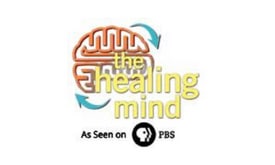
Free Audio and Video Resources to Help with Your Stress and Self-Care ›
Resources for using guided imagery to reduce stress and aid in healing
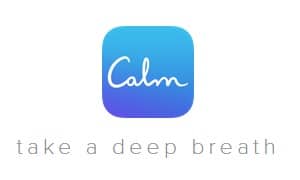
Free Resources ›
Premium access requires a paid subscription
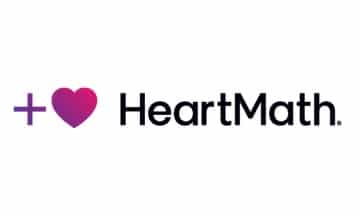
Relieving Stress and Anxiety ›
Free mobile app, but full functionality requires purchase of a sensor to provide heart rate variability coherence feedback

Progressive Relaxation exercise ›
From Shanti Norris, a yoga teacher who works with people with cancer
Remembering Ourselves through Breathing
Author, clinical professor and CancerChoices advisor Rachel Naomi Remen, MD, demonstrates a breathing technique to help lower anxiety.
Play videoInformation for health professionals
A large RCT found that the mental health and dynamic referral for oncology (MHADRO) program may increase access to mental health care, lessen hospitalizations, and improve providers’ management of psychosocial needs, but does not appear to impact overall functioning over time.53O’Hea E, Kroll-Desrosiers A et al. Impact of the mental health and dynamic referral for oncology (MHADRO) program on oncology patient outcomes, health care utilization, and health provider behaviors: a multi-site randomized control trial. Patient Education and Counseling. 2020 Mar;103(3):607-616.
Practice guidelines for professionals
In their 2023 guidelines, the American Society of Clinical Oncology (ASCO) recommends screening for anxiety at diagnosis and at regular periods during treatment and recovery.
Helpful links for health professionals
Fu F, Zhao H, Tong F, Chi I. A systematic review of psychosocial interventions to cancer caregivers. Frontiers in Psychology. 2017 May 23;8:834.
Griffiths RR, Johnson MW et al. Psilocybin produces substantial and sustained decreases in depression and anxiety in patients with life-threatening cancer: a randomized double-blind trial. Journal of Psychopharmacology. 2016 Dec;30(12):1181-1197.
Ross S, Bossis A et al. Rapid and sustained symptom reduction following psilocybin treatment for anxiety and depression in patients with life-threatening cancer: a randomized controlled trial. Journal of Psychopharmacology. 2016 Dec;30(12):1165-1180.
Learn more
References

